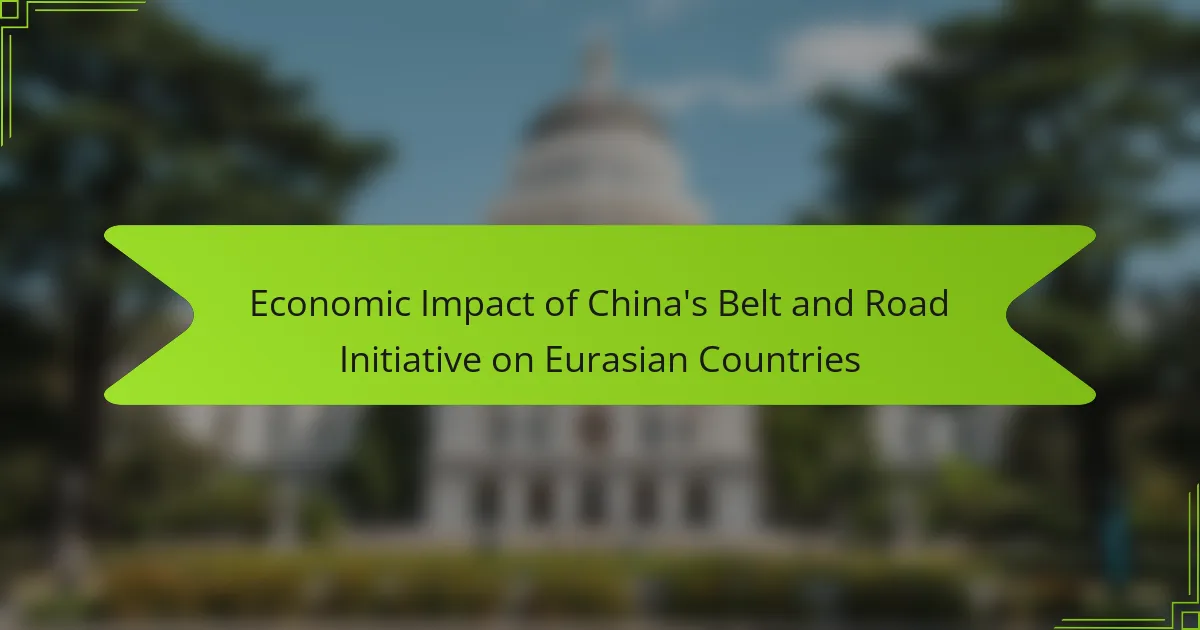The Belt and Road Initiative (BRI) is a global development strategy initiated by China in 2013, aimed at enhancing regional connectivity and economic growth through infrastructure development and expanded trade links. This initiative comprises two main components: the Silk Road Economic Belt and the 21st Century Maritime Silk Road. The BRI is projected to significantly […]
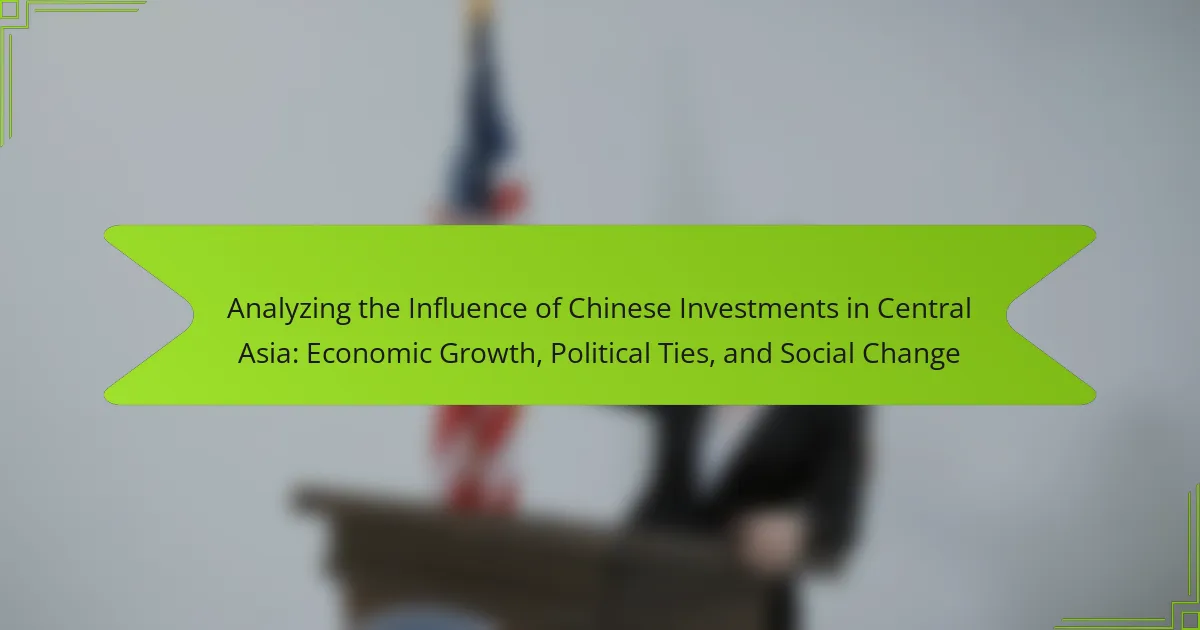
Analyzing the Influence of Chinese Investments in Central Asia: Economic Growth, Political Ties, and Social Change
Chinese investments in Central Asia play a crucial role in driving economic growth, enhancing political ties, and facilitating social change within the region. These investments, particularly through the Belt and Road Initiative (BRI), focus on infrastructure development, including roads, railways, and energy pipelines, which improve connectivity and trade opportunities. They also create job opportunities, especially […]
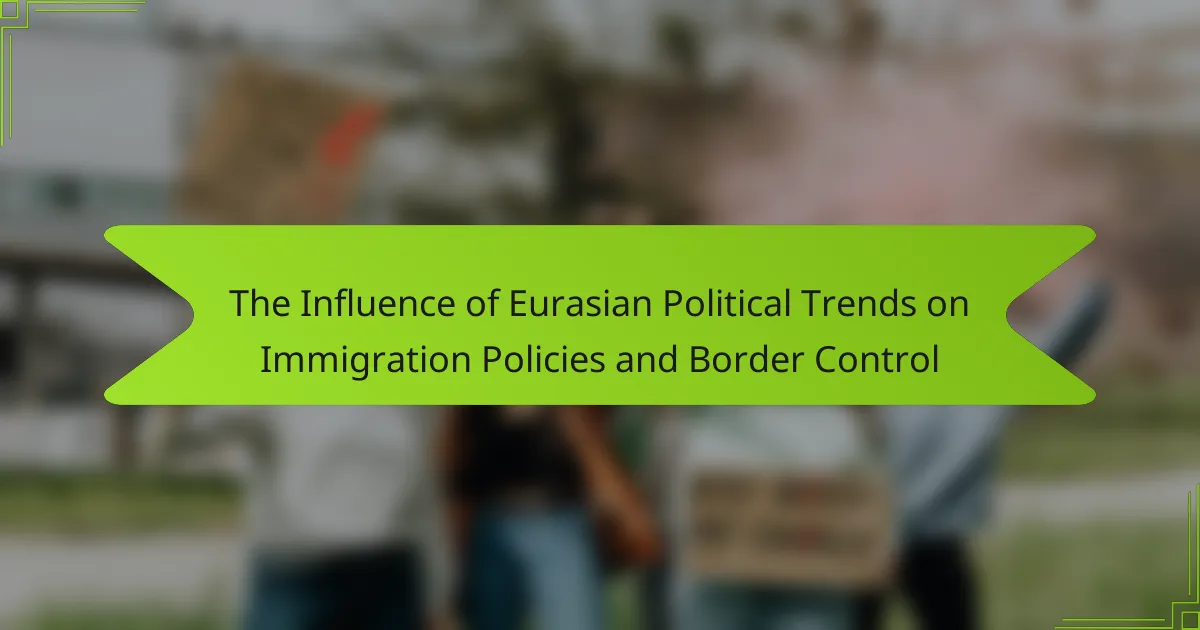
The Influence of Eurasian Political Trends on Immigration Policies and Border Control
Eurasian political trends significantly influence immigration policies and border control across the region. Rising nationalism, geopolitical tensions, and economic migration are key factors shaping these policies. Countries such as Hungary and Poland are enacting stricter immigration laws driven by nationalist movements, while Russia is tightening border controls due to geopolitical conflicts. Economic migration from Central […]
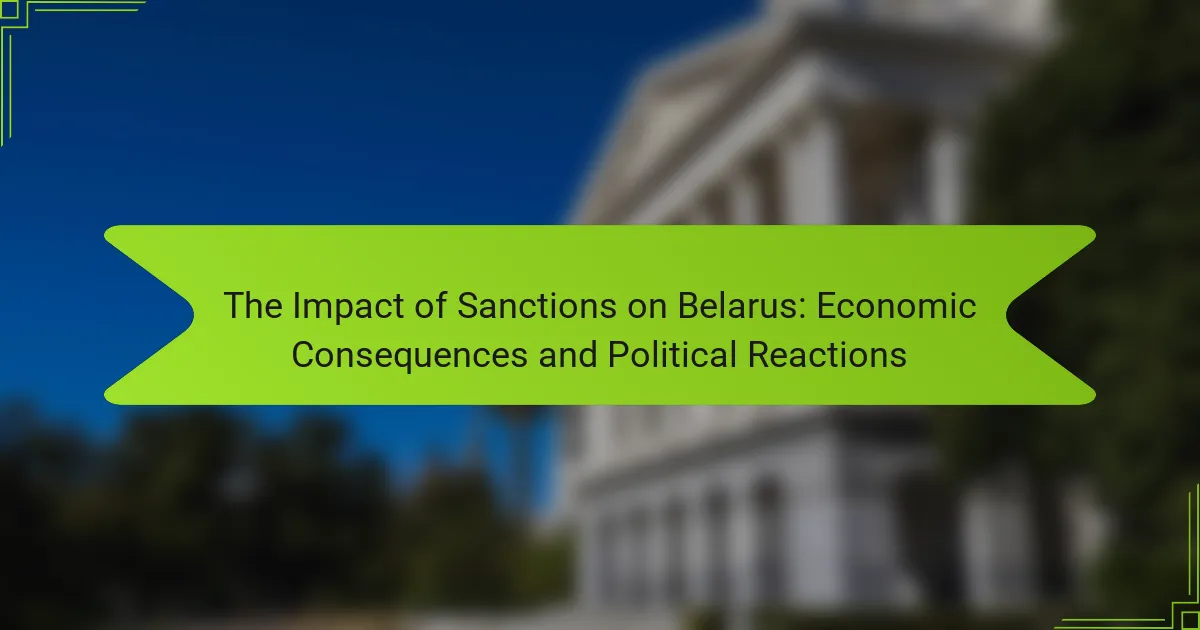
The Impact of Sanctions on Belarus: Economic Consequences and Political Reactions
The article examines the impact of sanctions imposed on Belarus, which include economic restrictions, travel bans, and asset freezes targeting key sectors such as finance, energy, and defense. These measures, enacted by the European Union and the United States in response to human rights violations following the contested 2020 presidential election, aim to pressure the […]
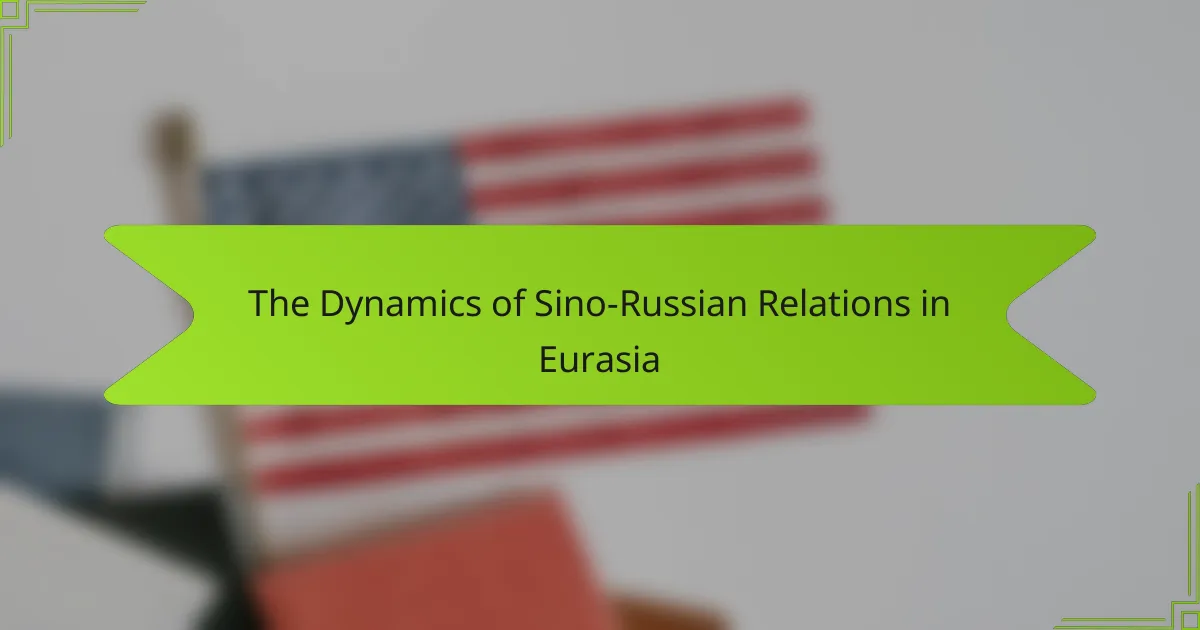
The Dynamics of Sino-Russian Relations in Eurasia
Sino-Russian relations in Eurasia encompass key elements such as economic cooperation, military collaboration, and geopolitical strategy. Economic ties have been bolstered by initiatives like the Belt and Road Initiative, which enhances trade and investment between the two countries. Military collaboration is highlighted through joint exercises and arms sales, reflecting shared defense interests. Geopolitically, both nations […]

Youth Activism in Georgia: Motivations, Methods, and Political Engagement
Youth activism in Georgia encompasses the participation of young individuals in various social and political causes, primarily focusing on education, environmental justice, and civil rights. This movement has seen a significant increase in engagement, with youth activism rising by over 50% in recent years, as noted in a 2020 report by the Georgia Alliance for […]
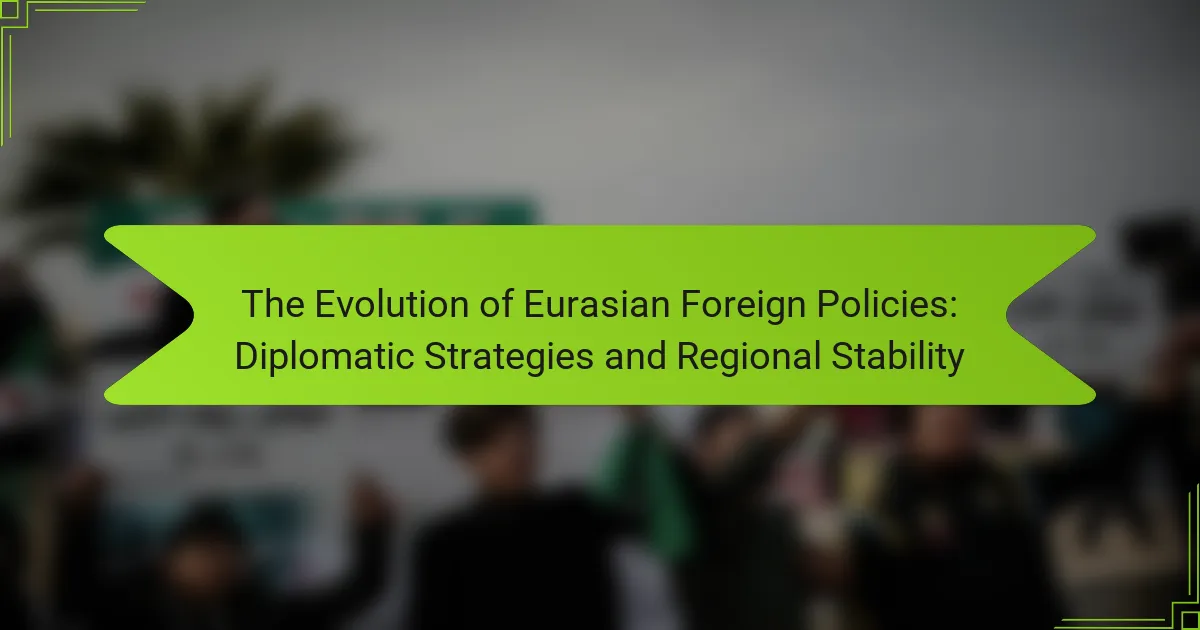
The Evolution of Eurasian Foreign Policies: Diplomatic Strategies and Regional Stability
The primary entity of the article is Eurasian foreign policies, which encompass strategic partnerships, regional security, economic cooperation, and cultural diplomacy among countries in the Eurasian region. The article outlines the evolution of these foreign policies, highlighting the shift from traditional bilateral treaties to modern multilateral diplomacy and the rise of digital diplomacy. It emphasizes […]
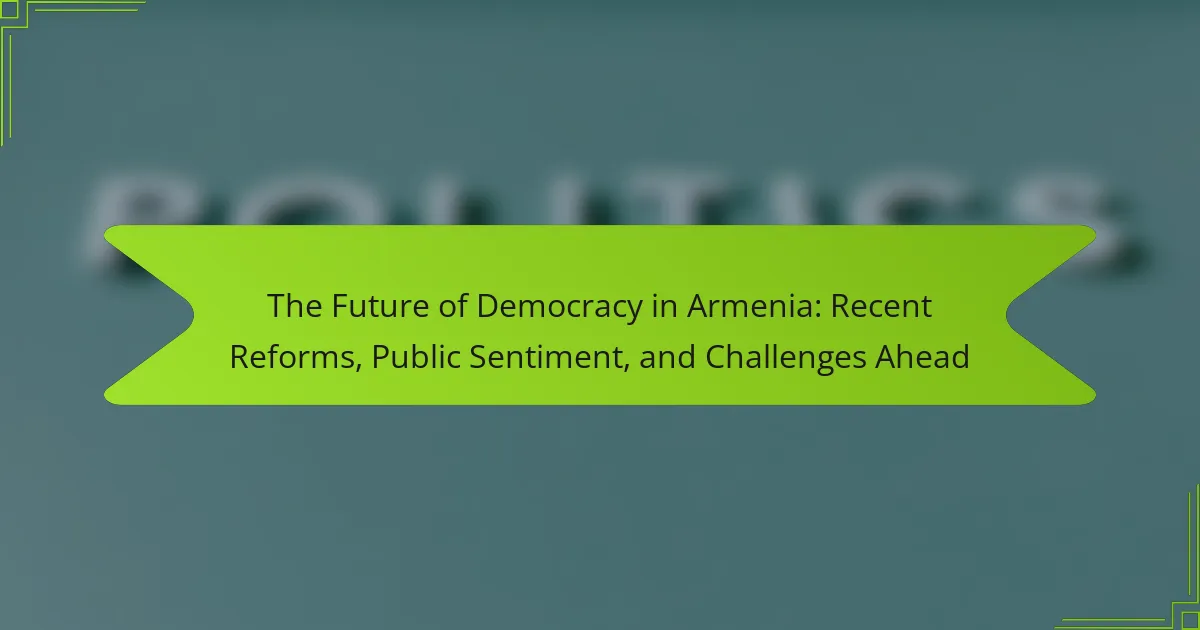
The Future of Democracy in Armenia: Recent Reforms, Public Sentiment, and Challenges Ahead
The article examines the future of democracy in Armenia, focusing on recent reforms, public sentiment, and ongoing challenges. Following the 2018 Velvet Revolution, Armenia has made notable advancements in democratic governance, including electoral reforms aimed at enhancing transparency. While public support for democratic principles is strong, challenges such as political polarization, corruption, and limited media […]

Ukraine’s Agricultural Exports: Trends, Challenges, and Opportunities
Ukraine’s agricultural exports are rapidly growing, positioning the country as a top global grain exporter, with approximately 60 million tons of grain, including wheat, corn, and barley, exported in the 2022-2023 marketing year. The sector is diversifying, with significant organic product exports valued at around $300 million in 2021 and sunflower oil exports reaching $4 […]
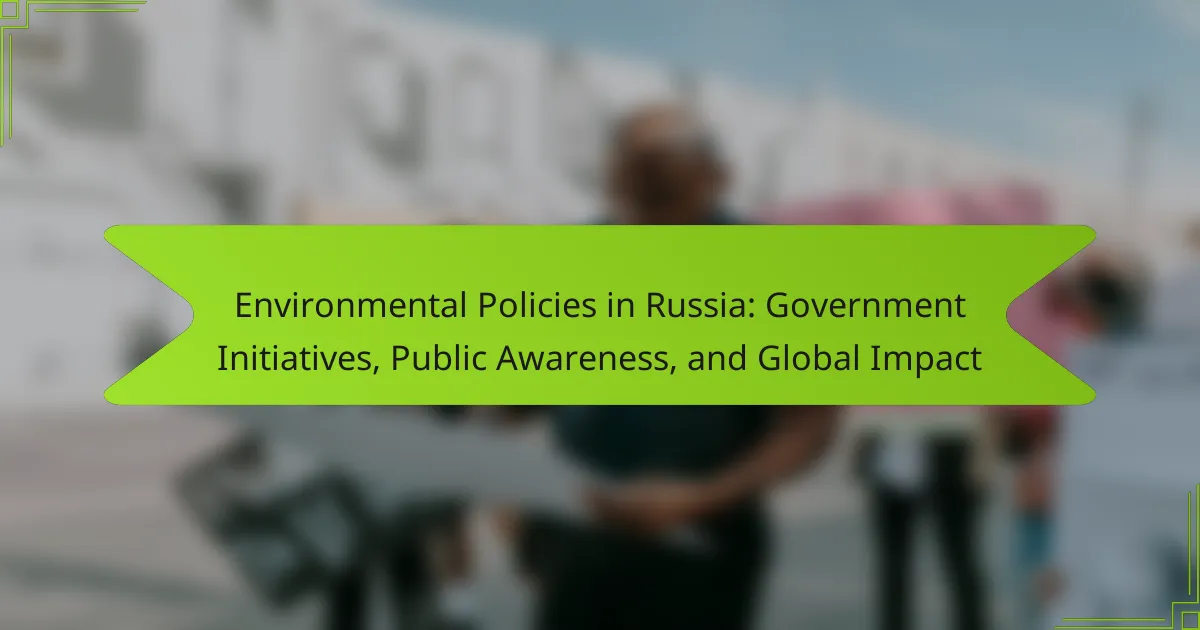
Environmental Policies in Russia: Government Initiatives, Public Awareness, and Global Impact
The article focuses on Russia’s environmental policies, including the Federal Law on Environmental Protection and the National Environmental Action Plan. These frameworks aim to promote sustainable development, improve air and water quality, and enhance biodiversity conservation. Public awareness initiatives, including government educational programs and non-governmental organization efforts, play a crucial role in increasing knowledge about […]
